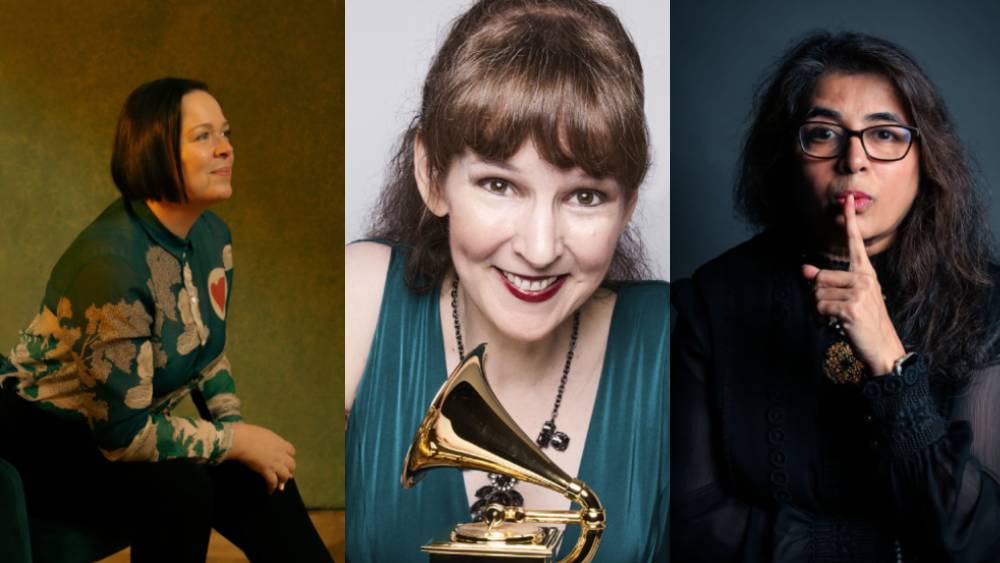Every summer, the Royal Albert Hall becomes the centre of a great British ritual. Outside the grand old venue, a familiar scene plays out: a line of devoted classical music fans — typically seen fiddling with their Tupperware, applying sun cream or getting out their waterproof jackets — snakes around the building, each waiting their turn to gain access to the world’s biggest classical music festival: BBC Proms.
It’s worth the convivial wait. With ticket prices starting at just under a tenner, attendees (or ‘Prommers’) can witness performances by the very best ensembles — ranging from the international likes of the Berliner Philharmoniker and the Tonhalle-Orchester Zürich to the UK’s Manchester Collective and Royal Northern Sinfonia — and internationally renowned soloists. It's little surprise to learn, then, that over two thirds of concerts during last year’s Proms sold out, while the average audience attendance at main evening concerts was 96%. Encouragingly, over a third (38%) of audiences at the Royal Albert Hall in 2024 were attending a Prom for the first time.
Such statistics will be music to the ears of Sam Jackson, Controller of BBC Radio 3 and BBC Proms. Having previously been part of the Royal Albert Hall’s on-site production team, he’s now in charge of shaping the Proms experience — not just for those in the queue, but for the millions more watching and listening at home.
‘Importantly, that 96% attendance figure applies across the whole Proms season, covering lots of repertoire,’ Sam tells M. ‘There are some people who come to every single Prom, which is remarkable, but the vast majority of people come to just one. That’s a reminder that every single concert has to be special, because for many people that experience is the Proms. That’s also positive because it demonstrates its broad appeal.’
'Every single Proms concert has to be special.'
As well as its traditional concerts, the Proms has also expanded its reach in recent years with some imaginative programming. Florence Welch and Sam Smith each memorably headlined a night during last year’s Proms, while the annual CBeebies Prom — now a regular fixture in the season after debuting in 2014 — has expanded the series' appeal to a pre-school audience. This year’s season, meanwhile, will include a special edition of jazz saxophonist and hip hop artist Soweto Kinch’s jazz-focused BBC Radio 3 show ‘Round Midnight.
While these themes may ruffle the feathers of some of the Proms purists, they still tally with the original raison d'être of the series. First staged in 1895 by impresario Robert Newman, the aim was to reach a wider audience by offering more popular programmes, adopting a less formal approach and, crucially, keeping ticket prices low. Today, that wide audience extends far beyond the concert venues the Proms are staged in.
‘Although we can get somewhat intoxicated by what is happening inside the Royal Albert Hall, we have to remember that, in the case of the Last Night [of the Proms], nearly 3.5m people watched the television broadcast last year,’ Sam explains. ‘Nine Proms will be shown across BBC One and BBC Two this year, which is potentially millions more eyeballs. Every Prom is broadcast on BBC Radio 3 and BBC Sounds. I love BBC Radio 5 Live’s football commentary because it recreates the atmosphere on the pitch. That’s what we try to do at Radio 3 [with our Proms coverage]. It’s really important to remember that this is a broadcast festival.’
It’s also vital to highlight the Proms’ wider artistic achievements within the classical music space. Nineteen contemporary works — including 10 pieces commissioned by the BBC — will be premiered at the Proms 2025, such as Master of the King’s Music Errollyn Wallen’s new piece The Elements and Rachel Portman’s latest commission The Gathering Tree. The latter will be performed on the Last Night of the Proms.
There have also been concerted efforts to make the Proms less London-centric, with this year’s season set to stage events in Bradford, Bristol, Gateshead and Sunderland. A special Prom in Belfast, meanwhile, will mark a centenary of BBC Radio 4’s Shipping Forecast.
While there’s much positivity when it comes to the Proms programme, Sam says there’s still a ‘big concern’ when it comes to nurturing the next generation of classical music lovers — especially due to funding cuts and a ‘narrowing of the talent pipeline’.
‘Since 2010, the uptake in GCSE Music has fallen by 36%,’ he explains. ‘There’s amazing work that’s being done, especially by music teachers, but we can’t ignore the inevitable knock-on effect. You don’t need to have done GCSE Music to enjoy going to a concert, in the same way as you don't need a GCSE in English Literature to enjoy going to see Hamlet being performed at the Globe. However, it’s about encouraging an appreciation of the arts from an early age.’
'We try to bring the spectacle of the Royal Albert Hall to your home.’
That's why world-renowned institutions like the Proms are vital, particularly in terms of broadening access to classical music, engaging with new audiences and ensuring the artform’s continued national relevance.
‘We try to bring the spectacle of the hall to your home,’ Sam adds of the Proms’ widely-broadcast reach. ‘But equally, if you want a great night out — for some that’s András Schiff playing Bach, and for others it's Trevor Nelson’s Soul Revolution Prom — you could come along to a Proms concert for just £8. We're feeling very buoyant — not arrogant — and we’re simply confident that, as ever, the Proms is bold, different and creative.’
This article features in the latest special edition of M Magazine, which you can read in full here.





